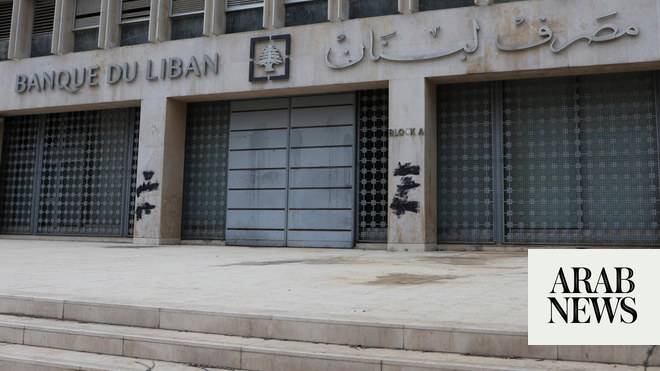
Lebanons Saad al-Hariri said on Wednesday he was not a candidate to be prime minister of a new government, leaving no obvious alternative to head a cabinet that must tackle the worst economic crisis since the 1975-90 civil war.
Hariri, the outgoing prime minister and Lebanons leading Sunni politician, made the statement on the eve of formal consultations to designate the new prime minister, a post reserved for a Sunni in Lebanons sectarian system.
"I announce that I will not be a candidate to form the coming government," Hariri said in a statement.
"I am heading tomorrow to take part in the consultations ... on this basis, insisting that they not be delayed for any reason," he said.
Hariri did not say who he would nominate for the post in the consultations which President Michel Aoun is due to host on Thursday. Aoun, a Maronite Christian, is required to designate the candidate with the most support among Lebanons 128 MPs.
The only candidate with the support of Lebanons Sunni Muslim religious establishment, Hariri had appeared the only candidate for the job earlier this week despite political tension with adversaries including Aoun.
But the picture was complicated when the Christian Lebanese Forces said it would name neither Hariri nor anyone else in the consultations, meaning his candidacy would not enjoy the support of either of Lebanons two main Christian parties.
Hariri resigned as prime minister on Oct. 29, prompted by protests against a political elite accused of overseeing rampant state corruption.
In a related development, security was tightened around protest centers in central Beirut Wednesday, after several nights of violence disrupted two months of largely peaceful anti-government demonstrations.
Barricades were erected overnight to block or control access to protest sites in the capital where counterdemonstrators have previously tried to attack protesters, AFP journalists said.
An officer who spoke to AFP on condition of anonymity said the concrete barriers were intended to help security forces better control the sites and prevent further clashes.
After violence between protesters and security forces in Beirut on Saturday and Sunday night, and between counterdemonstrators and police on Monday night, the capital remained calm on Tuesday.
The unprecedented protests started on October 17 against a political elite deemed inept and corrupt. Protesters demand a complete overhaul of the ruling class and a new government formed of independent experts.
On Tuesday night, young supporters of the Shiite Amal movement threw stones at anti-government protesters in the southern Shiite stronghold of Nabatieh, a witness said.
Unknown perpetrators set fire to a Christmas tree in the northern city of Tripoli, an AFP correspondent said.
On Monday night, dozens of supporters of the countrys two main Shiite political parties set fire to cars and clashed with security forces trying to prevent them from reaching Beiruts main protest square.
Pressure to form a new government is compounded by the near collapse of the economy, already weakened by years of political deadlock and the impact of the eight-year-old war in neighboring Syria.
The World Bank estimates that Lebanon is in recession, and has warned that the number living in poverty could increase from a third to half the population.











